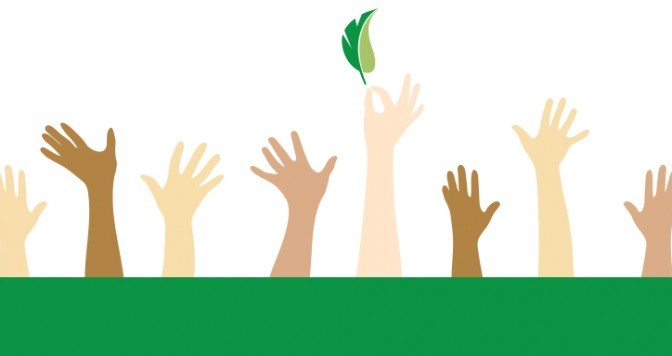
This week, in honor of Martin Luther King Day, “It’s Hot in Here” brings you in-depth discussion of the state of diversity in the environmental movement and the University of Michigan. We kicked off the show with a brief review of the findings of the recently released report, “The State of Diversity in Environmental Organizations: Mainstream NGOs, Foundations, and Government Agencies,” spearheaded by Dr. Dorceta Taylor (SNRE) and the Green 2.0 Working Group.
Guests Beatriz Canas and Samantha Shattuck talk us through the implications of the report’s conclusion that, despite increasing racial diversity in the US, minorities remain underrepresented across the spectrum of environmental organizations. As a result, diversity tends to decrease as responsibility increases, with the “Green Insiders Club” remaining overwhelmingly white.
In the second half of the show, we speak more broadly to diversity across the University of Michigan campus, exploring how new initiatives look to advance inclusion and dialogue. Asking the broader question: why does diversity matter in these various arenas? we link to ongoing issues of water rights in Detroit and Michigan, where traditionally underrepresented communities are again bearing the burden of environmental harms.
Dorceta Taylor, PhD is a James E. Crowfoot Collegiate Professor of Environmental Justice, the Director of Diversity, Equity and Inclusion Office, and Past Chair of the Environment and Technology Section of the American Sociological Association at the University of Michigan. Her research areas include environmental justice, natural resource use, food security, and organizational diversity.
Samantha Shattuck is the Program Manager at the Office of Diversity, Equity & Inclusion at the University of Michigan School of Natural Resources and Environment. Samantha is a recent masters graduate in environmental justice and environmental policy. Her research interests include climate change, water access, and disparate environmental exposure.
Beatriz Canas is the Project Manager of the Doris Duke Conservation Scholars Program at the University of Michigan School of Natural Resources and Environment. She got her masters here in Environmental Justice in Dr. Taylor’s office, where she was involved in the aforementioned report.

